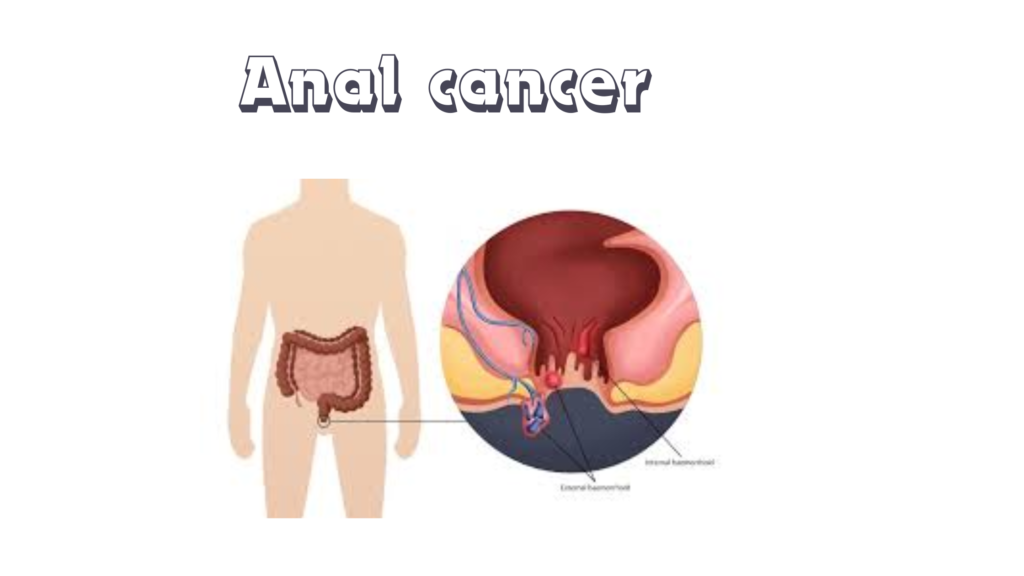Anal cancer is a rare malignancy that originates in the tissues of the anus, the opening at the end of the gastrointestinal tract. Unlike colorectal cancer, anal cancer is strongly associated with human papillomavirus (HPV) infection, especially HPV type 16.
📚 Types of Anal Cancer
| Type | Description |
|---|---|
| Squamous cell carcinoma | Most common (~80–90%), arises from anal mucosa |
| Basaloid/Cloacogenic carcinoma | Variant of squamous cell, near dentate line |
| Adenocarcinoma | Less common; from anal glands or fistula tracts |
| Melanoma | Rare, aggressive, often pigmented |
| Sarcoma | Very rare |
⚠️ Risk Factors
- HPV infection (especially types 16, 18)
- Receptive anal intercourse
- Multiple sexual partners
- HIV infection
- Immunosuppression (e.g., organ transplant)
- History of cervical, vulvar, or vaginal cancer
- Smoking
- Chronic anal fistulas or inflammation
😖 Symptoms
- Rectal bleeding
- Anal pain or pressure
- Itching or discharge
- Lump or mass near anus
- Change in bowel habits
- Enlarged groin lymph nodes
Symptoms may mimic hemorrhoids, fissures, or infections — often causing delayed diagnosis.
🧪 Diagnosis
- Physical exam
- Inspection and digital rectal exam (DRE)
- Palpation of inguinal lymph nodes
- Anoscopy or proctoscopy
- Direct visualization and biopsy of the lesion
- Imaging for staging:
- Pelvic MRI: local tumor extent
- CT scan or PET-CT: nodal or distant metastases
- Biopsy: confirms cancer type and grade
📊 Staging (TNM System)
| Stage | Description |
|---|---|
| I | Tumor ≤2 cm, no spread |
| II | Tumor >2 cm, no lymph nodes involved |
| III | Spread to nearby lymph nodes |
| IV | Distant metastases (e.g., liver, lungs) |
💊 Treatment
🎯 Standard (Non-metastatic disease)
🔹 Chemoradiation (Nigro Protocol)
- Combination of 5-FU + Mitomycin C + radiation
- Organ-sparing and very effective (70–90% control rate)
- Surgery reserved for non-responders
✂️ Surgery
- Local excision: for very small, superficial lesions
- Abdominoperineal resection (APR): for persistent/recurrent disease or large tumors not responsive to chemoradiation
- Results in permanent colostomy
💉 Advanced/Metastatic disease
- Chemotherapy: options include cisplatin + 5-FU, or carboplatin + paclitaxel
- Clinical trials and immunotherapy (e.g., PD-1 inhibitors) under investigation for advanced HPV-positive cases
📉 Prognosis
| Stage | 5-Year Survival Rate |
|---|---|
| Localized | ~80–85% |
| Regional spread | ~60–70% |
| Distant spread | ~30% or less |
Early detection significantly improves outcomes.
✅ Prevention & Screening
- HPV vaccination (Gardasil 9) — protects against HPV types 16 & 18
- Safe sexual practices
- Regular anal Pap tests in high-risk individuals (e.g., men who have sex with men, HIV-positive patients)
- Smoking cessation
